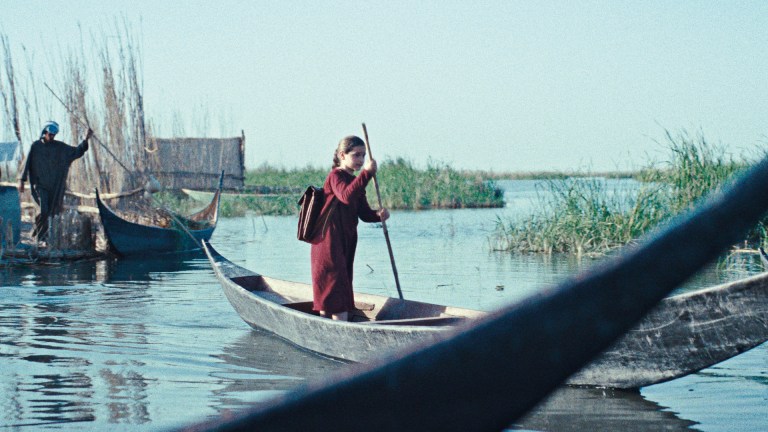At 16, I was incredibly shy to the point where I couldn’t speak. I was afraid to speak. I feared being ridiculed. I always hated reading in class. And as a result of being so nervous about reading aloud in class, I would stumble over my words and stutter. It was so painful. So I became even shyer and more withdrawn and more introverted. In many ways, I kind of lost my voice.
I was always a storyteller, and that was my refuge. I would hide behind a camera and tell stories as a filmmaker in the backyard with an old 8mm movie camera. Or I would write a short story or poem or journal and sometimes even a play. I was always comfortable in that space but never comfortable as myself.
My parents were struggling artists. My mother was and still is an artist and got a scholarship to The New School in New York, while my dad [Hollywood icon Martin Sheen] was given a bus ticket and $200 from the priest and sent to New York to pursue a career as an actor. And that’s where they met. So they understood when I said to them that I want to be an actor, I want to be a filmmaker, I want to write. They saw themselves in my passion to do this work.
I grew up on the sets of Apocalypse Now and Badlands. But I was very quiet on those sets. I was watching. And when you are watching directors like Francis Coppola directing, you are like, Oh my God, I’m really just better off keeping my mouth shut. You want to be invisible. But I got to know what everybody did on set. There’s Vittorio Steraro, this extraordinary cinematographer lighting the scene, there’s the director of The Godfather taking the actors through their paces – and there’s Marlon Brando! So I knew what a privilege it was to be there, as mad as it was. Hearts of Darkness, the film about the making of Apocalypse Now, was wild. But what was not caught on film was 10 times the madness. It was absolute insanity. I will never forget it.
How do you separate what you read about yourself versus how you really feel about yourself? Because you have to be incredibly thick-skinned to not be affected by it
I would tell my younger self not to take myself too seriously because I was a brooding young man. I took myself very, very seriously. If I look at pictures of myself at 14, 15, 16 years old, I wasn’t smiling a lot. And there didn’t seem a whole lot to smile about. I still consider myself a serious person but I realise all of this is fleeting, that this is a brief moment in time in the history of the planet and the world. I also realise it’s a very important moment. We are at a very critical tipping point. So I’m mindful of my place on the planet.
I grew up in a very progressive household. My father has been arrested 69 times for nonviolent civil disobedience and he has predominantly focused on three issues – homelessness, anti-nuclear and immigration. As a boy and as a young man, I would watch him on the news – oftentimes they would only cover the protests because he was going and he was drawing attention to the issue. Or I would sit next to my mother as he was carted off in handcuffs, reciting the Lord’s Prayer at the top of his lungs looking out of his mind. I was embarrassed as a young man. I understood fundamentally why he was doing it, but did not understand on a spiritual level until I started working on my new film, The Public – which takes place in a library and deals with homelessness and mental illness. I screened it for my dad and he was in tears. I said, ‘I paid attention. I understood. I listened to you – and God bless you’. I thanked him for another lesson I didn’t realise I was learning.









